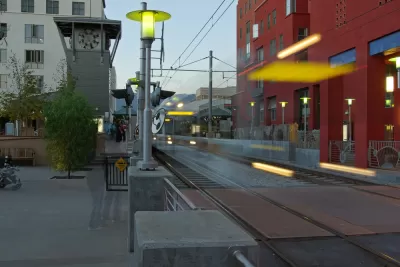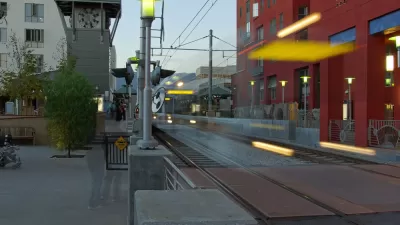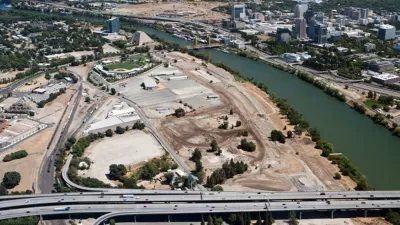Two USC professors argue that Los Angeles would be better served if Metro could recapture some of its investment in the county's expanding rail system.

In light of the extensions of the Los Angeles County Metropolitan Transportation Authority's (Metro) extension of the Gold and Expo lines this year, USC professors Marlon Boarnet and Gary Painter want to ensure that the benefits of Metro investments get back to L.A. communities.
In a Los Angeles Times op-ed, the authors note areas in the city where rail investment has helped to drive up the value of land and to fuel development. Metro has helped to generate that value, they argue, so Metro should be able to recoup some of it for the benefit of the city—especially areas neglected by other investment:
"Fairness suggests that the taxpayers who are footing the bill for the transit lines should share in the wealth that rail creates."
The authors look to Hong Kong and Brazil for successful value-capture programs, but ultimately endorse a local solution: Enhanced Infrastructure Financing Districts (EIFDs).
If Metro could establish EIFDs surrounding stations throughout the rail system, the agency could capture the tax increment from the increase in land value created by its projects.
The revenue could go toward building affordable housing (Metro's Joint Development Program currently has a target of 35 percent affordable units per project), parks, further transportation improvements, or any number of things.
As the authors point out, all this would make Metro "much more than a people-mover"—a direction the agency has already been moving in, with its stated attention to gentrification and policy of fostering transit-oriented communities.
EIFDs are still new, and few have taken shape in urban areas, although one has been proposed around the L.A. River.
FULL STORY: Op-Ed: How L.A. can improve its return on our multibillion-dollar transit investment

Planetizen Federal Action Tracker
A weekly monitor of how Trump’s orders and actions are impacting planners and planning in America.

Chicago’s Ghost Rails
Just beneath the surface of the modern city lie the remnants of its expansive early 20th-century streetcar system.

San Antonio and Austin are Fusing Into one Massive Megaregion
The region spanning the two central Texas cities is growing fast, posing challenges for local infrastructure and water supplies.

Since Zion's Shuttles Went Electric “The Smog is Gone”
Visitors to Zion National Park can enjoy the canyon via the nation’s first fully electric park shuttle system.

Trump Distributing DOT Safety Funds at 1/10 Rate of Biden
Funds for Safe Streets and other transportation safety and equity programs are being held up by administrative reviews and conflicts with the Trump administration’s priorities.

German Cities Subsidize Taxis for Women Amid Wave of Violence
Free or low-cost taxi rides can help women navigate cities more safely, but critics say the programs don't address the root causes of violence against women.
Urban Design for Planners 1: Software Tools
This six-course series explores essential urban design concepts using open source software and equips planners with the tools they need to participate fully in the urban design process.
Planning for Universal Design
Learn the tools for implementing Universal Design in planning regulations.
planning NEXT
Appalachian Highlands Housing Partners
Mpact (founded as Rail~Volution)
City of Camden Redevelopment Agency
City of Astoria
City of Portland
City of Laramie




























